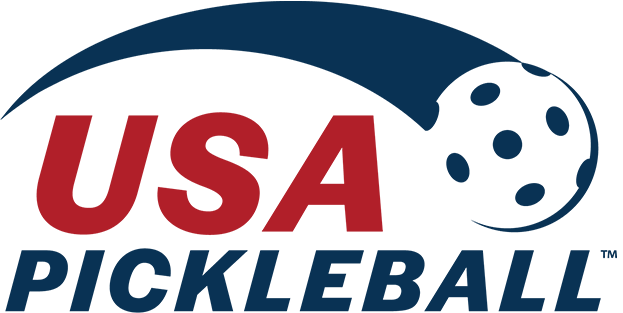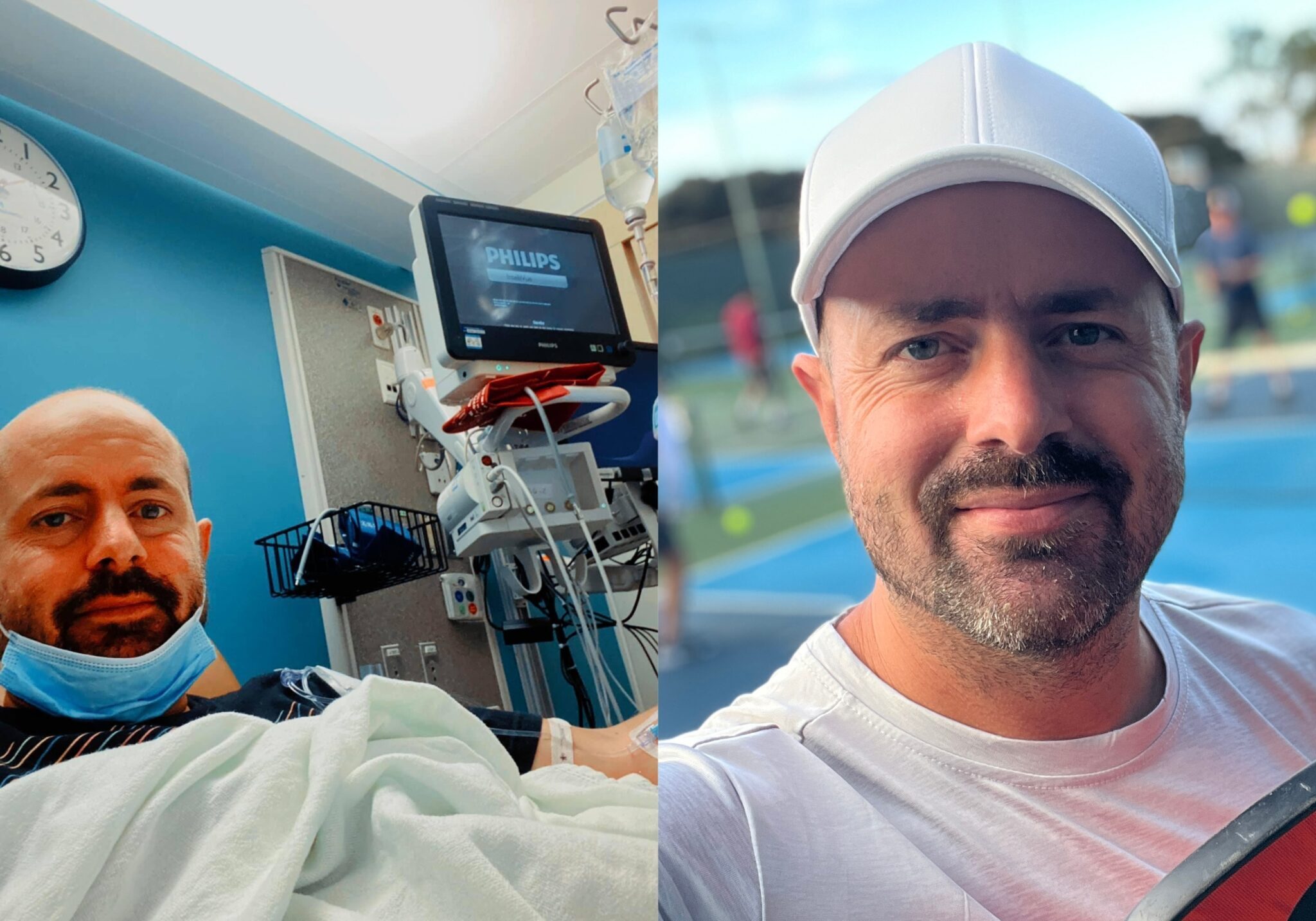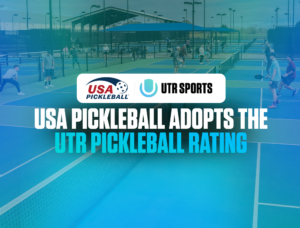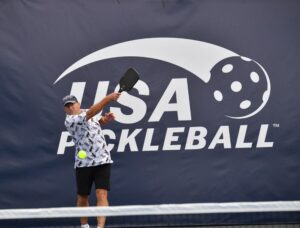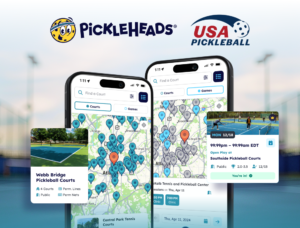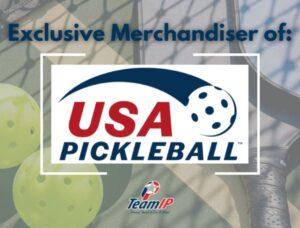Simon Lovell Has Made A Living Supporting Others, But When He Needed A Boost He Got It From Pickleball
Lovell discovered pickleball while recovering from Guillain-Barre syndrome, and now he’s deeply involved in the sport.
By Karen Price
Red Line Editorial
Simon Lovell has spent his adult life coaching and supporting others to grow and evolve, and when he most needed encouragement himself he found it on a pickleball court.
Finding the sport and the positivity that went along with that helped him to heal both mentally and physically from a challenging time. It’s also inspired him to dream big about helping others to consider the future of the game.
“I started meeting people who were very kind and so open to teaching me the ropes,” he said. “And the amount of positive affirmation. … I work in personal development, so I teach affirmations, but when you get someone saying, ‘Well done, you’re improving,’ it makes you want to go back.”
Lovell is originally from England but is now located in San Diego. He worked as a personal trainer, wrote a diet book in 2008, and then started helping other trainers to grow their businesses. In 2021, he was speaking at an event where one of the activities included jumping off a rock into the water. He felt something tweak in his back when he did it, and the feeling got worse as he drove home that night.
Scans showed a herniated disc, but soon he wasn’t able to walk. A visit to the neurologist confirmed Guillain-Barre syndrome, a disorder in which the immune system attacks the nervous system. The exact cause is unknown, but it often develops after an infection.
Lovell was able to walk again soon after receiving treatment at the hospital, but other symptoms continued. He moved back home to live with his family in Florida during his recovery.
“When you have an issue with your immune system it impacts other things,” said Lovell, who was 44 at the time of his diagnosis. “I wasn’t so active, so I had issues with my back. I would spend most of the day on the floor trying to get my back feeling better, sleeping on an acupuncture mat, just trying to release my nervous system because your nervous system is just in fight or flight mode the whole time.”
Lovell fell into a depression. He wasn’t interested in doing much of anything, so when his family tried introducing him to pickleball he played a few games, but it didn't stick.
“I just wasn’t interested,” he said. “I just wasn’t wanting to be around people.”
After the family moved to San Diego, Lovell began incorporating daily meditation at a local park into his recovery. That park was near the Coronado Island Marriott Resort & Spa, which has pickleball courts for the use of both guests and the general public. After a few days of hearing the sounds of the game, he decided to stop in the hotel fitness center.
“I went in and said, ‘How does pickleball work?’ because in my head, I needed to have a partner, and that’s a block to people who are more introverted,” he said. “They said, ‘There’s something called open play.’”
Lovell went online and bought a beginner paddle. His intention to play once a week quickly turned to playing five times a week. As he’s become less sedentary and his fitness is building, his symptoms are lessening. And the sport has done wonders for his mental health in recent months.
“Everyone says pickleball is an addiction,” he said. “An addiction is something you can’t stop. I think the opposite of addiction is connection, but I think with pickleball the addiction is the connection. For me, the hook is the connection with people and the joy. Pickleball is love. And that sounds all woo-woo, wishy-washy, but it’s an entryway to your own heart and to others who are really nice and kind, and it creates an avenue for other things that are beneficial, like fitness.”
Lovell’s passion for the game now intersects with his work and hobbies. He’s created Picklepreneurs, a “pickleball business growth league” to help people who want to start or grow pickleball-related businesses through his knowledge of business and marketing.
He has an Instagram page, a podcast and recently launched his Picklepreneurs Success League, a gamified community for networking and growth opportunities. He sees the sport expanding into new spaces, such as facilities that combine pickleball, personal training, massage and even coffee.
“Pickleball has really helped me to retrain that part of the brain that says, ‘You can’t do this,’ when you get a diagnosis,” he said. “And I’ve made some great friends and connections through that.”
Karen Price is a reporter from Pittsburgh who has covered Olympic and Paralympic sports for various publications. She is a freelance contributor to USA Pickleball on behalf of Red Line Editorial, Inc.
